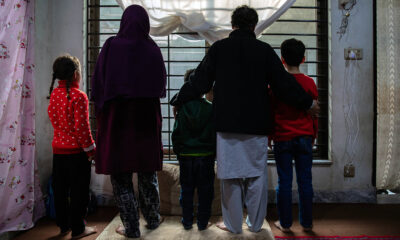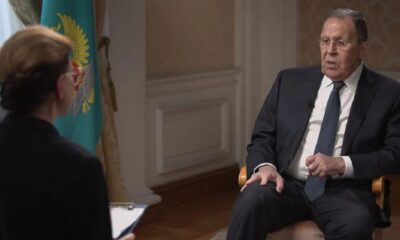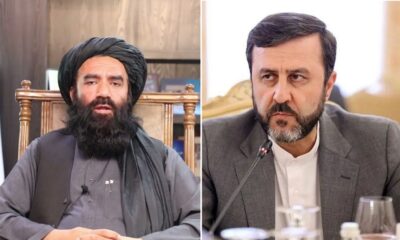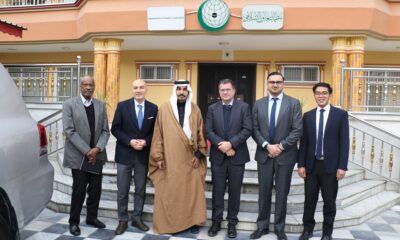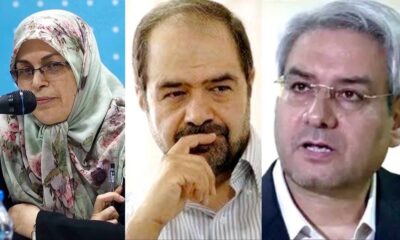Latest News
Violence and terrorism key concerns noted in Heart of Asia declaration
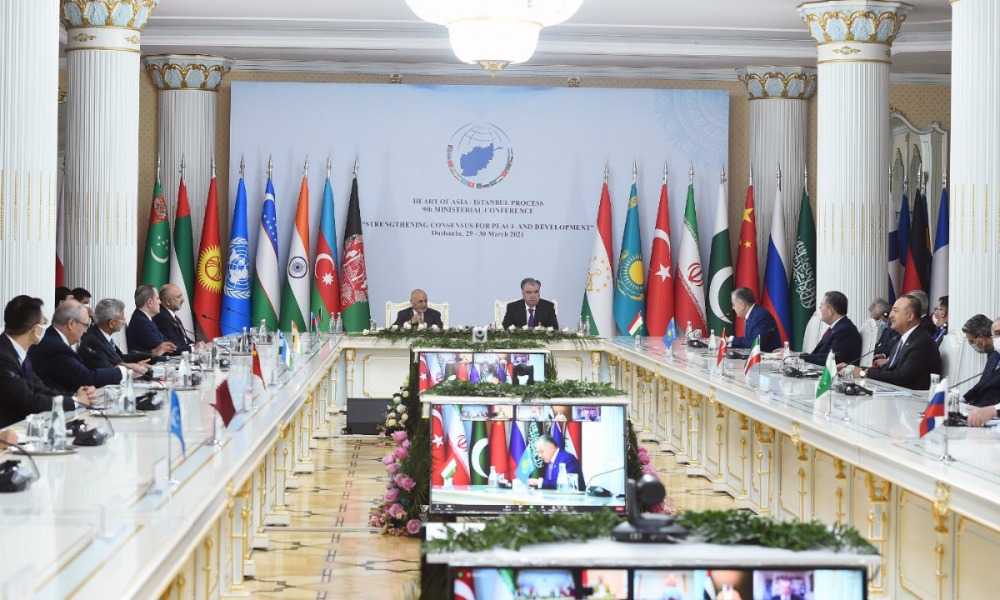
Delegates attending the Heart of Asia-Istanbul Process ministerial meeting in Dushanbe, Tajikistan, signed a declaration on Tuesday on a number of key issues including the concern around the high levels of violence in Afghanistan and the continued relations between the Taliban and international terrorist groups, including Al-Qaeda.
In their declaration, the participating countries expressed their “concerns about the continued relations between the Taliban and international terrorist groups, including Al-Qaeda”.
“While taking note of the recent announcement made by the Taliban to have ordered its members across Afghanistan not to allow foreign fighters in their ranks, we reaffirm the importance of ensuring that the territory of Afghanistan is not used as safe havens for any terrorist groups, foreign terrorist entity, including Daesh/ISIS, Al-Qaeda or other regional and international terrorist groups and their affiliates,” the declaration read.
The participating countries also stated they “remain determined to counter all forms and manifestations of terrorism and extremism by reinforcing our collective efforts.
“We reiterate our resolve to work together to prevent and suppress terrorist acts through increased regional and international solidarity and cooperation, in accordance with the UN Charter and obligations under international law, including international human rights law, international humanitarian law, and where applicable the international refugee law, as well as through the full implementation of the UN Security Council Resolutions.”
In this regard, the participating countries said they “strongly call for concerted regional and international cooperation to ensure dismantling of terrorist sanctuaries and safe havens, preventing and interdicting the movement of terrorists and terrorist groups, including foreign terrorist fighters, across the countries of the HoA Region and anywhere else, as well as disrupting all financial, tactical, logistical or any other form of support for terrorism without any distinction.”
Also in line with security, the declaration noted that all participating countries welcome efforts to forge peace in Afghanistan and that they were all committed to a safe and secure Afghanistan.
The declaration noted that a comprehensive and permanent ceasefire in Afghanistan will enable all sides to reach an agreement on a political settlement, which the participatory countries stated that any political settlement must protect the rights of all Afghans, including women, youth and minorities.
“It should also respect the strong desire of Afghans to achieve durable peace and prosperity, and must respond to their strong desire to sustain and build on the economic, social, political and development gains achieved since 2001, including respect for Afghanistan’s international obligations,” the statement read.
On the topic of narcotics, the declaration noted the HoA countries were concerned about the high level of illicit cultivation and production of opium in Afghanistan, the volume of drug trafficking, illicit drug trade, trafficking of precursors, the new prevalence of methamphetamine, the rising demand for illicit narcotics and the rising drug abuse in the region and beyond.
“This poses a threat to the socio-economic development, security and stability not only in Afghanistan, but also in the surrounding region and the world as a whole.
“Further eradication of opium cultivation, promotion of alternative livelihoods, law enforcement, prevention, treatment, rehabilitation and public information efforts are required as part of a comprehensive and integrated strategy to address this common challenge, based on the principle of common and shared responsibility, and consistent with the international drug control conventions.
“We call upon the international community to continue to assist the Government of Afghanistan in implementing its National Drug Control Strategy and National Drug Action Plan and its efforts to eliminate the cultivation and production of, trafficking in and consumption of illicit drugs, increase support for Afghan law enforcement and criminal justice agencies, agricultural and rural development for the creation of improved alternative, licit livelihoods for farmers and demand-reduction support, increase public awareness of counter-narcotics issues and build the capacity of drug control institutions, and care and treatment centers for drug users.”
The declaration also noted that participating countries “stress the urgent need to respond to the serious challenges posed by the nexus between revenue from illicit narcotics and financial support for anti-government actors and terrorist entities in Afghanistan and the HoA Region.”
The declaration also noted joint efforts to advance Afghanistan’s economy and that of the region were welcomed and they acknowledged the historical role of Afghanistan as a land bridge in promoting regional connectivity and economic integration.
The HoA-IP declaration also stated participating countries “recognize the central and impartial role of the United Nations in promoting peace and stability in Afghanistan”.
Member nations also said they appreciate the continued efforts of the OIC and its Member States in support of the Afghan Peace Process and their call for an immediate and comprehensive ceasefire.
“We also welcome the declarations of the Muslim countries calling for an end of violence and calling the ongoing war and bloodshed in Afghanistan religiously illegitimate.”
Confidence-building measures to enhance trust and cooperation was also noted in the declaration with member nations calling for participating countries to continue implementing such measures that are in place.
The declaration was adopted in Dushanbe on Tuesday, 30 March 2021, by the Foreign Ministers and high-level representatives of the Participating Countries of the HoA-IP.
These included Afghanistan, Azerbaijan, China, India, Iran, Kazakhstan, Kyrgyz Republic, Pakistan, Russia, Saudi Arabia, Tajikistan, Turkey, Turkmenistan, the United Arab Emirates, and Uzbekistan.
The declaration was also supported by Australia, Canada, Denmark, Egypt, Finland, France, Germany, Iraq, Italy, Japan, Poland, Norway, Spain, Sweden, the United Kingdom, the United States, and more than ten organizations including NATO and the UN.
Latest News
Pakistan to repatriate nearly 20,000 Afghans awaiting US resettlement
Authorities will also share verified data of the affected individuals with relevant departments to support implementation.
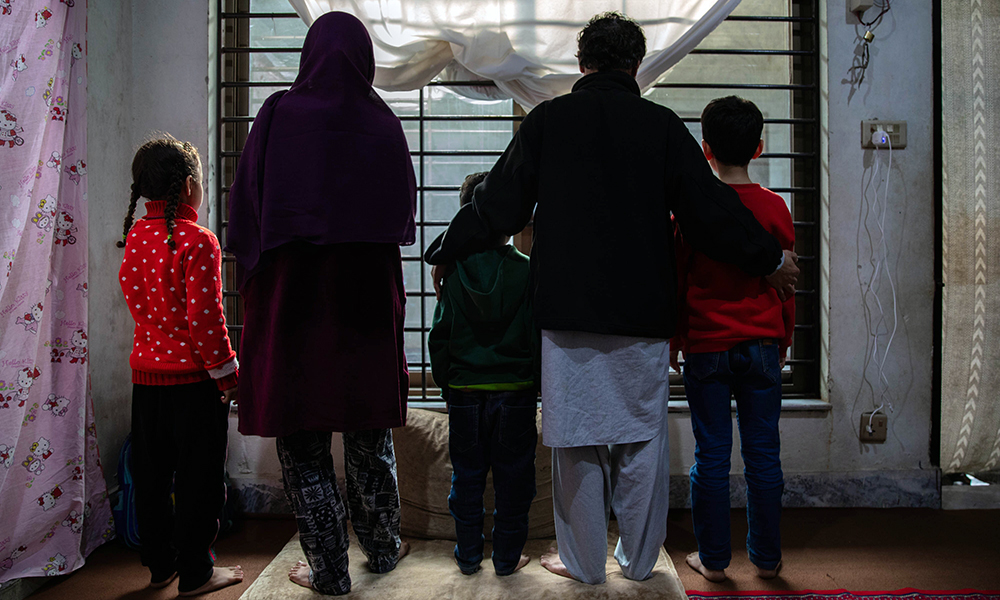
Pakistan will repatriate nearly 20,000 Afghan nationals currently awaiting resettlement in the United States, The Nation reported, citing official sources.
The move affects 19,973 Afghans living across Pakistan.
A federal directive will instruct provincial chief secretaries and police chiefs in Punjab, Sindh, Khyber Pakhtunkhwa, Balochistan, Azad Kashmir, Gilgit-Baltistan, and the Islamabad Capital Territory to begin the repatriation process immediately.
Authorities will also share verified data of the affected individuals with relevant departments to support implementation.
Following the Islamic Emirate’s return to power in 2021, more than 100,000 Afghans fled to Pakistan, many of whom had worked with the US and UK governments, international organizations, or aid agencies.
Thousands have remained stranded in Pakistan for over four years while awaiting US resettlement clearance.
Prospects for relocation have dimmed amid a suspension of case processing by the US administration, according to The Nation.
Under Pakistan’s Illegal Foreigners Repatriation Plan (IFRP), all Afghan nationals still awaiting US relocation will now be returned to Afghanistan.
Latest News
Terrorist activities observed along Afghanistan borders, says Lavrov
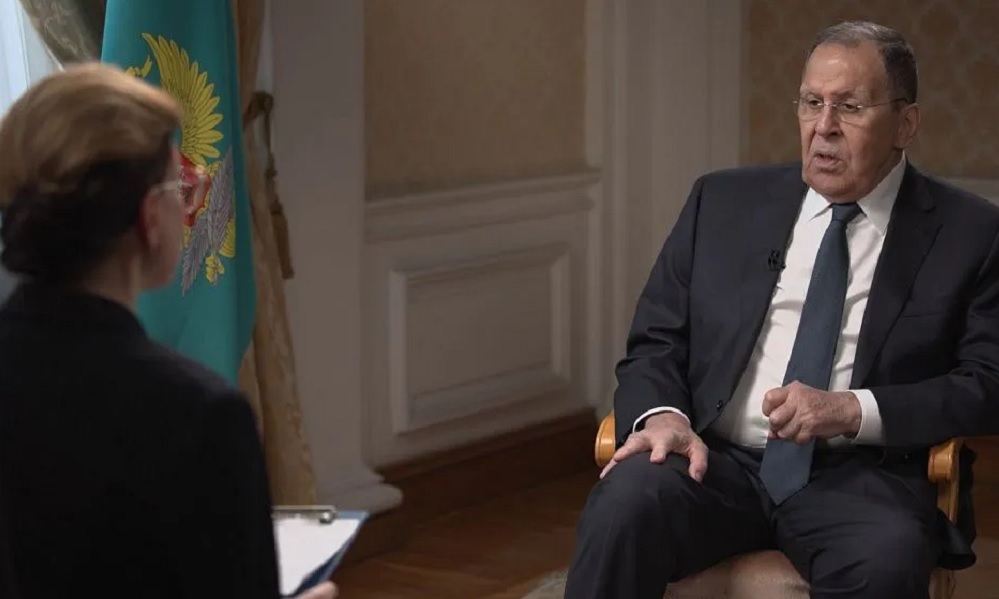
Terrorist activities continue to be observed along Afghanistan borders and along the India–Pakistan–Afghanistan corridor, Russian Foreign Minister Sergei Lavrov said in an interview published on Monday.
Speaking to Russia-based media outlet TV BRICS, Lavrov pointed to ongoing concerns in the Middle East, including its Asian regions.
He highlighted the importance of collaboration with India at the United Nations to advance a global counter-terrorism convention.
Lavrov stated that while the draft convention has already been prepared, consensus on its adoption has not yet been reached.
Russia has repeatedly expressed concern about militant threats from Afghanistan. The Islamic Emirate, however, has dismissed the concerns saying that it will not allow Afghanistan’s soil to be used against any country.
Latest News
Afghan border minister holds phone talks with Iran’s deputy foreign minister
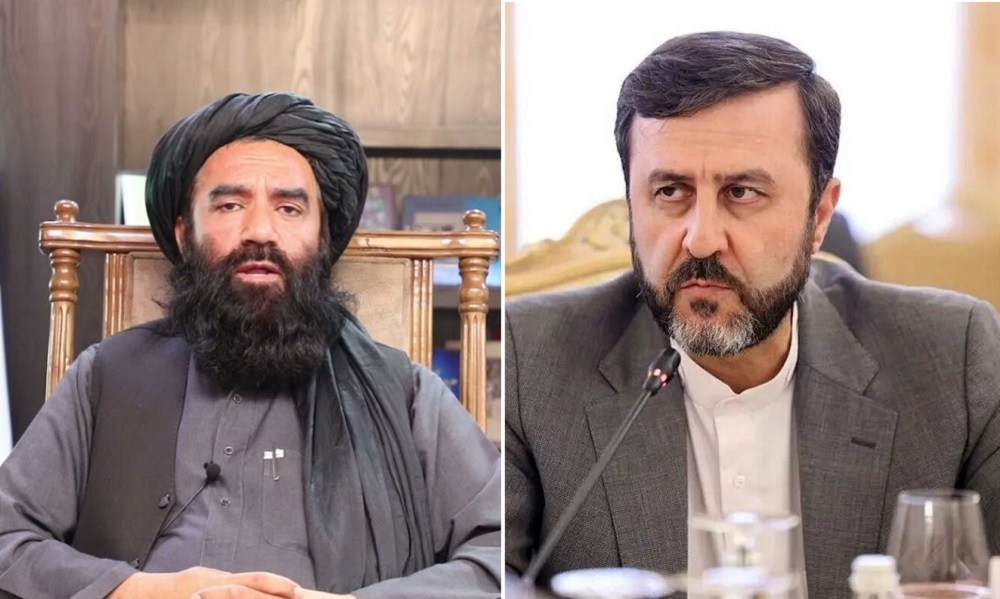
Noorullah Noori, Afghanistan’s Minister of Borders and Tribal Affairs, held a phone conversation with Kazem Gharibabadi, Iran’s Deputy Foreign Minister for Legal and International Affairs, to discuss bilateral border cooperation.
According to the Iranian news agency IRNA, both sides reaffirmed their commitment to strengthening border collaboration, with a particular focus on the ongoing renovation and updating of border markers. They also agreed to accelerate joint technical and legal meetings to enhance coordination.
As part of the agreement, the next meeting of senior border officials from Afghanistan and Iran is scheduled to take place in Iran in 1405 (2026–2027).
-

 Latest News2 days ago
Latest News2 days agoAfghanistan to grant one- to ten-year residency to foreign investors
-

 Latest News4 days ago
Latest News4 days agoTerrorist threat in Afghanistan must be taken seriously, China tells UNSC
-

 Sport3 days ago
Sport3 days agoIndonesia shock Japan to reach historic AFC Futsal Asian Cup final
-

 Sport4 days ago
Sport4 days agoMilano Cortina 2026 Winter Olympics: What You Need to Know
-

 Sport2 days ago
Sport2 days agoIran clinch AFC Futsal Asian Cup 2026 in penalty shootout thriller
-

 Latest News4 days ago
Latest News4 days agoUS Justice Department to seek death penalty for Afghan suspect in National Guard shooting
-

 Latest News3 days ago
Latest News3 days agoAfghanistan says Pakistan is shifting blame for its own security failures
-
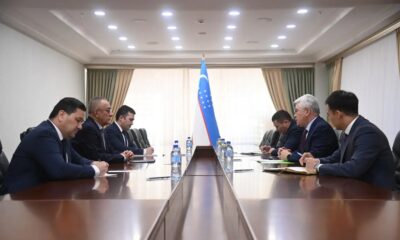
 Latest News4 days ago
Latest News4 days agoUzbekistan, Kazakhstan discuss cooperation on Afghanistan


